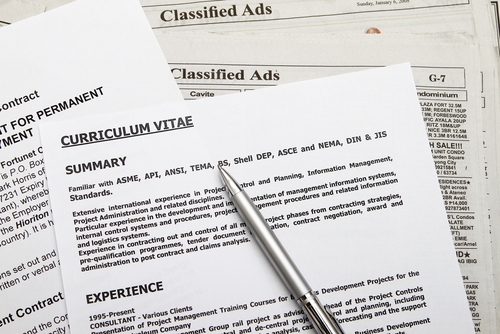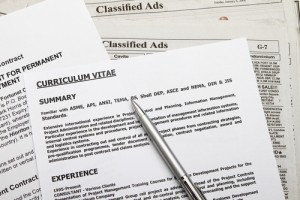
The Top Ten Things to Avoid When Writing Your CV: Part 1
 Having a perfectly polished CV can help to put you at the top of the recruiter’s pile, but equally a poor one is a sure fire way to ensure you never get called for an interview.
Having a perfectly polished CV can help to put you at the top of the recruiter’s pile, but equally a poor one is a sure fire way to ensure you never get called for an interview.
To avoid the most common mistakes made by job seekers Oxford Open Learning’s professional CV writer and English tutor, Jane Bradley, has put together a list of things you must avoid if you want to make the right impression.
1. Being overlong
Recruiters are busy people and your CV is likely to be just one of a huge pile they need to trawl through when searching for their perfect candidate. If it’s not essential information (name/telephone number/work history) and isn’t really adding anything (key achievements) then leave it out. The key words here are ‘precise’ and ‘succinct’. Cut the waffle and stick to a limit of two A4 typed pages. Using a teeny font will just make your CV harder to read, so won’t do you any favours in the long run –Times New Roman at point size 11/12 is ideal.
2. Focusing on what you’ve done, rather than what you’ve achieved
Including an achievements section is an effective way of highlighting all the brilliant things you have done to date. This is your time to show off! Did you receive the ‘Sales Person of the Month’ award? Increase profitability by 7%? Reduce running costs? Complete a course by distance learning? Focusing on your achievements, rather than a dry list of your daily duties, is a sure way to set you apart from the rest.
3. Being poorly organised
From misaligned bullet points, crowded text boxes or listing jobs in chronological order, having a poorly organised CV will hinder your chances of getting that interview. Keep it simple and neat. Everything should be properly aligned, with equal line spacing and text justified. Use reverse chronological order for education and career summaries, usually with employment first, unless you are especially short on experience, or really want to highlight a new qualification.
4. Inappropriate email addresses
Who are you going to call for an interview: suziesmith@myemail.com, or booziesuzie@partyhard.com? There are plenty of companies offering free, simple to set up email addresses, so there are no excuses!
5. Including irrelevant information
In the past it was important to include things like date of birth, gender, religion or marital status, but as well as eating up valuable space, this is now seen as out-dated. Pictures are also unnecessary, unless you are applying for modelling, or acting work. However, having a full, clean driving licence is likely to be a plus point for many employers, so include it if you have the space.
Jane Bradley
Tutor
For more information on Oxford Open Learning’s home study courses contact a student adviser on 0800 9 75 75 75.